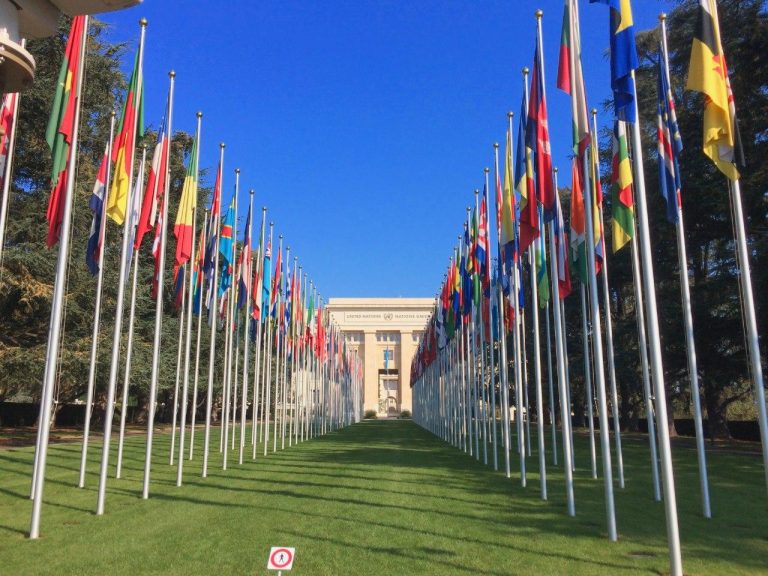
Assemblea President Elisenda Paluzie took part in the United Nations Europe and Central Asia Regional Forum 2022 to denounce the latest Spanish state’s use of the Pegasus spyware against the peaceful and democratic Catalan independence movement.
Representatives of the Catalan National Assembly, led by its president Elisenda Paluzie, took part on Monday and Tuesday in the UN Europe and Central Asia Regional Forum 2022, held in Vienna, to denounce the Spanish authorities’ abuses against the Catalan national minority, with a new grievous addition: the Catalangate scandal, the massive illegal use of spyware Pegasus against the Catalan pro-independence movement.
Ms. Paluzie addressed the room twice. During the first session, titled Normative framework: existing norms and interpretations, she stated how the #Catalangate affair has affected the organization: “Five members of our organization, including myself, have been the targets of Pegasus spyware used by Spanish authorities to spy massively on the Catalan independence movement, as denounced by the Canadian research center Citizen Lab, as part of a massive attack against at least 65 political and civil society leaders, journalists, and even their lawyers and families”.
During the second session, Implementation: Institutions, Mechanisms, Policies, and Programmes, Ms. Paluzie stated how “the Catalangate scandal is even more worrying, as the spyware has not been used against criminal o terrorist threats but against political dissidence”, and that “Spain, alongside Hungary and Poland are for now the only cases of State espionage within the EU, creating a dangerous precedent not only for European minorities, but for national minorities all over the world.”
Ms. Paluzie also invoked article 2 of the 1992 Declaration on the Rights of Persons Belonging to National or Ethnic, Religious and Linguistic Minorities, which recognizes that “all States shall take measures to ensure that persons belonging to minorities may exercise fully and effectively all their fundamental human rights without discrimination or inequality” and called on UN authorities to develop a more active role to protect civil and political rights of the Catalan minority.
Other Assemblea general board members also intervened during the following sessions, denouncing the persecution of over 3,300 peaceful Catalan activists and representatives by the Spanish authorities, which is creating a chilling effect on the exercise of freedom of expression, assembly and association, and the right to political participation.
In her reply to the first of Ms. Paluzie’s statements, the Spanish ambassador to Austria Cristina Jimenez de Muñana stated that “Catalan political leaders were judged and imprisoned in application of Spanish law, because they broke the law”. The president of Assemblea replied that “when in 2019 the UN Working Group on Arbitrary Detention asked for the immediate release of Catalan political prisoners, they mentioned that the organization of a self-determination referendum is not a crime according to Spanish legislation, and that their imprisonment involved a violation of their right to freedom of assembly, freedom of expression, and freedom of political participation, among other rights”.
Ms. Paluzie also denounced that Spanish government is justifying the espionage against the Catalan pro-independence movement, as the Spanish Defense Minister did last week in the Spanish Congress, “justifying disproportionate violations of fundamental rights that are recognized by the Spanish Constitution itself, for the sake of the unity of the State.”
Finally, Ms. Paluzie called on UN authorities to “take measures to ensure that Spanish authorities cease and desist their political persecution of Catalan political representatives and activists, respect the fundamental rights of the Catalan national minority, and engage in real political negotiation to solve this self-determination conflict”